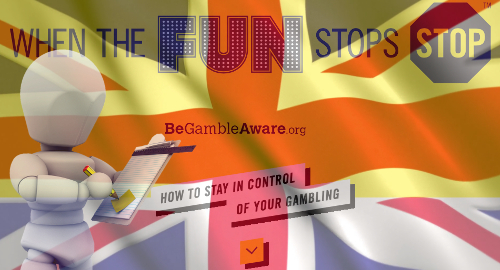 One of the architects of a UK responsible gambling campaign is pushing back against claims that its message is achieving the exact opposite of its stated goals.
One of the architects of a UK responsible gambling campaign is pushing back against claims that its message is achieving the exact opposite of its stated goals.
Last weekend, the usual UK media suspects gleefully published details of a new University of Warwick study on the effectiveness of the ‘When the Fun Stops, Stop’ (WTFSS) responsible gambling campaign. The campaign was launched in 2015 by the Senet Group, which counts numerous UK gambling and betting industry heavyweights among its members.
The study involved showing 506 participants faux online gambling advertisements, some of which were accompanied by the WTFSS label, others with no label. The participants, all of whom had online betting experience, were also given a sequence of nine £0.10 bonuses, which they could choose to use (or not) on a football wager.
The researchers found that participants chose to wager 37.8% of the time when no responsible gambling label was shown, but this number increased to 41.3% when participants had seen the label.
While the researchers acknowledged that this difference was “not significant,” they nonetheless concluded that the warning label “did not achieve its aim of prompting more responsible gambling behavior in the experiment.” They also took issue with the fact that the word ‘fun’ was significantly larger than the other words in the label.
Bollocks, says Ollie Gilmore, a strategy director at creative agency The Corner in London, who worked on the campaign. On Tuesday, Gilmore penned an op-ed for Campaign Live saying that the Warwick study “contains major flaws.”
For one thing, Gilmore pointed out that the object of the WTFSS campaign was to “reduce the likelihood of gamblers entering problem territory.” A key plank of this effort is keeping bettors from gambling more than they can afford.
Gilmore believes it’s “a stretch” to think that any gambler would feel they’d crossed a line by wagering 10p, even less so when the money they were wagering wasn’t even theirs. Gilmore called this “a clear departure from actual signs of entering problem gambling territory in real life.”
Gilmore also took issue with the claims regarding the size of the word ‘fun’ in the label, noting that the label used in the study was an older version. The label used in the study also omitted the current label’s references to GambleAware and the ‘18+’ tag.
Gilmore further noted that industry surveys have revealed one-third of ‘regular’ gamblers (who gamble more than twice a month) said the WTFSS campaign had “made me think about my gambling behavior,” which Gilmore believes offers a sharp rebuke to the Warwick researchers’ claims that the campaign ‘doesn’t work’.
Bottom line, Gilmore acknowledged that any campaign can stand improving but “a campaign as important as this requires informed judgment, not just attention-grabbing headlines.”